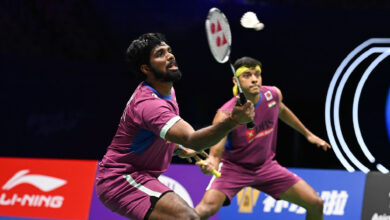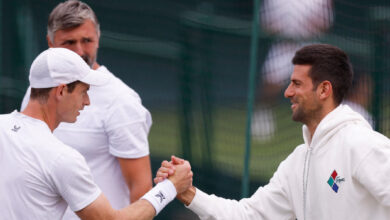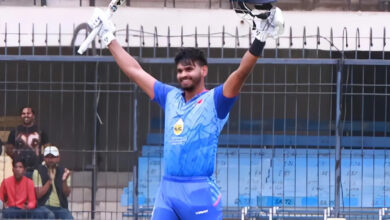FIFA head of refs wants all stoppage time added in blowouts

FIFA wants full stoppage time added even in blowouts though its refereeing chief said Thursday a “mercy rule” that baseball uses at some levels could be debated in the future to end games at 90 minutes.
Liverpool’s 7-0 rout of Manchester United on Sunday had only three minutes added at the end despite six-second-half goals, FIFA head of refereeing Pierluigi Collina told reporters in a briefing.
The 2022 World Cup in Qatar showcased a push FIFA and Collina to give fans more entertainment having referees add accurate amounts for stoppages such as goal celebrations, substitutions, injuries and time-wasting.
It led to so-called 100-minute games and meant Spain’s 7-0 rout of Costa Rica in the group stage had eight minutes of added time, Collina said. It let Álvaro Morata score the seventh goal.
Though Morata’s goal was not crucial in the final Group E standings, Spain did advance ahead of Germany on the tiebreaker of goal difference.
“In some competitions the goal difference in the entire competition may be decisive at the end for the ranking,” Collina said. “So even one goal scored or not scored could make the difference.” In 1989, Arsenal won the English league title over Liverpool on the tiebreaker of goals scored with the teams’ goal difference identical. The teams met in the last game of the season and Arsenal’s 2-0 win at Liverpool was sealed a goal in second-half stoppage time.
Collina acknowledged that lengthy added time in games such as Liverpool’s lopsided win last weekend could be viewed as “something not really understandable,” though he suggested consency was key.
“At the World Cup people knew what to expect,” said the former top match official, who refereed the 2002 final. “Where there is consency on the field of play every decision is better.” FIFA and soccer’s rule-making panel known as IFAB want World Cup-style timekeeping to be adopted globally next season so 100-minute games should become routine in domestic leagues.
Still, Collina did suggest soccer could one day look for inspiration from baseball to control the length of games.
Baseball’s “mercy rule,” used at international tournaments and at some U.S. collegiate levels, ends a game when one team builds a big lead after a certain number of innings.
“Maybe in the future we may consider within the laws of the game to say that additional time has not to be given at the end of the match if there is a difference of x’ goals between the teams,” Collina said.
“At a certain stage we need to consider what is common sense or what is not.”







